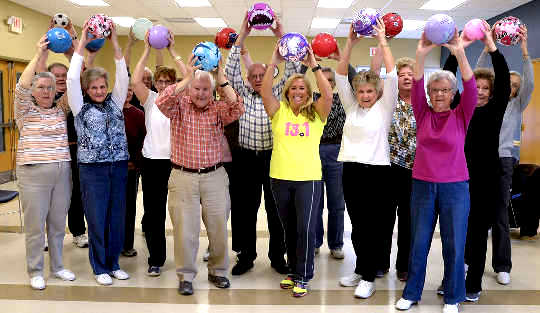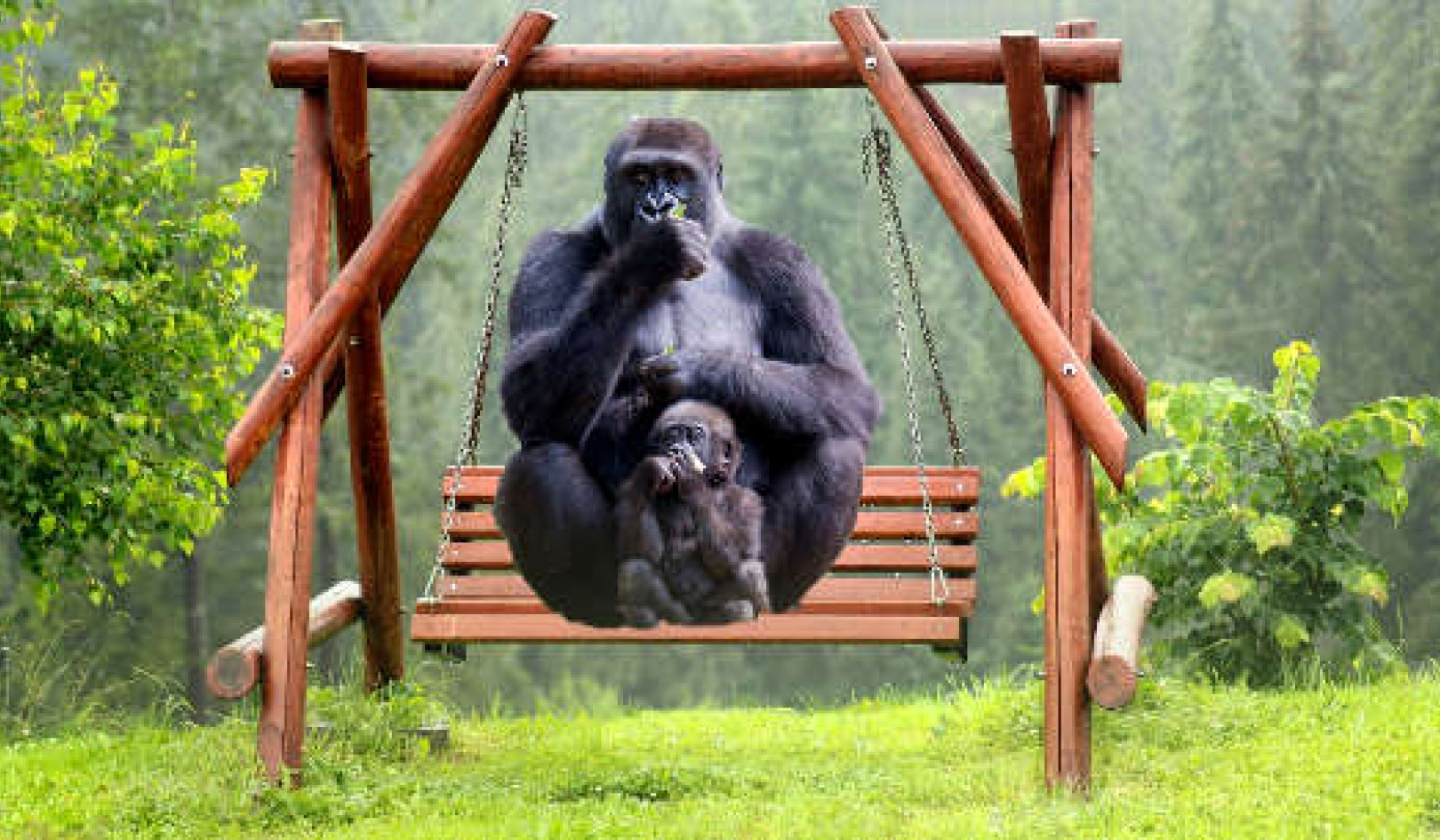
Growing older is inevitable and, as has been said, better than the alternative. Limiting ourselves by age, though, is a state of mind. But often we accept stereotypical statements about age, aging, and what is supposed to happen at certain ages. We don’t need to accept any of these thoughts!
Today, more than ever, the supposed and sanctioned prohibitions, barriers, and blocks to many activities at certain ages are smashed daily. The authors of Living to 100, Thomas Perls and Margery Silver of the New England Centenarian Study in Boston, which started in 1994, tell us that, contrary to earlier prevailing thought, many way-beyond-Boomer older people continue active engagement in business, volunteerism and family life. Centenarians, say Perls and Silver, “paint a stunning picture of the potential of aging. They demonstrate that long life can mean a healthy, enjoyable life . . . a life of satisfaction.”
80-Year-Old Ceiling Busters
Daily headlines trumpet the accomplishments of 60-, 70-, 80-year-olds and older. They run marathons, exhibit paintings, win awards, fulfill their dreams, pursue what they love.
Clint Eastwood continues to direct at 86. George W. Bush went skydiving on his 90th birthday. Angela Lansbury at 91 continues to act. Writer Herman Wouk is 101. Kirk Douglas at 100 is coming out with his twelfth book. Yoga master Tao Porchon-Lynch at 98 lectures, teaches, and does all the limb-bending poses. And we each can probably think of many more musicians, painters, architects, technological wizards, corporate CEOs, and others who have smashed the birthday ceiling.
The “Too Late” Assumption
Nevertheless, many of us limit ourselves with the “too late” lament, and it seems to have no lower limit. In the park, I saw a 30-year-old mother wheeling two babies and telling her friend she wished she’d gotten into the pastry-catering business she’d always craved. She added, “I couldn’t begin now. It’s too late.” When a man of about 45 told me he’d always wanted to take piano lessons, I suggested he start. “Oh, no,” he said, “way too late! I couldn’t learn now.”
The great English poet John Milton, author of Paradise Lost, wasn’t immune to the “too late” chorus. In one of his more famous sonnets, he mourned the passing of opportunity: “When I consider how my light is spent / Ere half my days in this dark world and wide . . . .” Translation: Milton felt his life was half over and he’d done nothing with his “light” or talent.
How old was he? Scholars differ as to when he wrote this poem, but they agree he was between 32 and 47. In either case, relatively young. Incidentally, having become blind at 43, he began Paradise Lost when he was age 52 and finished it at 57. Too late?
I recall my own lament when a college classmate attained instant fame. Because of her success, I thought everything was over for me, that I’d never have any chances at publishing, and that it was indeed way too late for me. My age at the time? 21.
The “too late” bug can bite at any age. It can burrow and get under your skin as depression and fester with its insidious bedfellow, jealousy. When you compare yourself with others, of course you always come out wanting. That train of thought only leads to more depression and mental, if not physical, paralysis. But with role models that inspire and show us no age limits, we can reverse our thoughts and self-expectations.
Is It Ever Too Late?
At 87, Stewart Elliot lived in a nursing home in Evansville, Indiana. Confined to a wheelchair, he survived two heart attacks and suffered from severe osteoporosis and acute digestive problems.
Yet, on a manual typewriter that must now be a collector’s item, he wrote a weekly column for the Evansville Courier & Press. Elliot wrote especially about life in a nursing home and the problems of many residents. Throughout his columns, and despite the concurrent ailments of his wife, who also lived in the home, Elliot stressed the importance of worthwhile contributions, emphasized a relentless upbeat attitude, and continued his column for many years.
Connie Goldman and Richard Mahler wrote a wonderful book titled Secrets of Becoming a Late Bloomer, and the 14 secrets include those of positive attitude, forgiveness, work, health, humor, creativity and spirituality. In the Foreword, Ken Dychtwald called for a shift in our perspective:
The antiquated view of maturity as a period of stagnation and decline must be replaced once and for all with the reality that the latter part of life is an exciting time of growth, productivity and newfound pleasures—if we know the secrets of becoming a Late Bloomer.
Another favorite book which I open in those depressive “too late” moods is called, aptly enough, Late Bloomers by the New Yorker writer Brendan Gill. He profiles many well-known people who “bloomed” late in life by the usual chronological standards and yet made significant contributions. Here are some of them, and I bet you had no idea: Harry Truman, Paul Cezanne, R. Buckminster Fuller, Julia Child, Ed Sullivan, Charles Darwin, KFC's Colonel Sanders, Pope John XXIII, Edward VII, Mary Baker Eddy, O. Henry, Mother Teresa, Miguel Cervantes, Jonathan Swift, Charles Ives, Edith Wharton, Sir Alexander Fleming.
Gill is unfazed by their lateness. In fact, he applauds it and even points out why it’s needed:
The lateness is every bit as significant as the blooming
. . . . [I]t has to do with the moment in time at which we discover, whether through an event dictated by forces outside ourselves or by a seemingly spontaneous personal insight, some worthy means of fulfilling ourselves.
Gill also makes a startling assertion: The age at which we make this discovery is irrelevant:
In other words, a particular age, despite our culture’s constraints and judgments, doesn’t affect our desire for fulfillment, the means we choose and must have, or our talent for accomplishing what we desire.
Our dreams and desires don’t vanish with the years. Julia Cameron, the creativity expert and coach, says that if at 20 you want to write a novel, you’ll still want to write it at 80 (The Artist’s Way: Meeting Your Creative Myths and Monsters, audiotape). Your dreams and talents don’t go away. They just go underground and keep resurfacing until you’re ready.
Your Turn
So, what have you always wanted, craved, yearned to do?
You can kick out those “culturally prescribed norms,” as Marianne Williamson calls them in The Age of Miracles. She observes, “We can forge a new vision, a new conversation, to take us beyond the limited thought-forms that have defined its parameters for generations.”
As you listen to your inner wisdom, you will gain the courage to re-declare for yourself a lifelong dream and act on it. Like a persistent neighbor, opportunity keeps knocking. Open the door. You are not limited by your age or entrenched societal notions of aging. Use your unbounded imagination and conscious decisions to know that anything is possible.
Smash your own birthday ceiling!
© 2016 Noelle Sterne. All Rights Reserved.
Adapted from Noelle Sterne, Trust Your Life: Forgive Yourself
and Go After Your Dreams (Unity Books, 2011).
Article Source
 Trust Your Life: Forgive Yourself and Go After Your Dreams
Trust Your Life: Forgive Yourself and Go After Your Dreams
by Noelle Sterne.
Click here for more info and/or to order this book.
About the Author
 Noelle Sterne is an author, editor, writing coach, and spiritual counselor. She publishes writing craft articles, spiritual pieces, essays, and fiction in print, online periodicals, and blog sites. Her book Trust Your Life contains examples from her academic editorial practice, writing, and other aspects of life to help readers release regrets, relabel their past, and reach their lifelong yearnings. Her book for doctoral candidates has a forthright spiritual component and deals with often overlooked or ignored but crucial aspects that can seriously prolong their agony: Challenges in Writing Your Dissertation: Coping With the Emotional, Interpersonal, and Spiritual Struggles (September 2015). Excerpts from this book continue to be published in academic magazines and blogs. Visit Noelle's website: www.trustyourlifenow.com
Noelle Sterne is an author, editor, writing coach, and spiritual counselor. She publishes writing craft articles, spiritual pieces, essays, and fiction in print, online periodicals, and blog sites. Her book Trust Your Life contains examples from her academic editorial practice, writing, and other aspects of life to help readers release regrets, relabel their past, and reach their lifelong yearnings. Her book for doctoral candidates has a forthright spiritual component and deals with often overlooked or ignored but crucial aspects that can seriously prolong their agony: Challenges in Writing Your Dissertation: Coping With the Emotional, Interpersonal, and Spiritual Struggles (September 2015). Excerpts from this book continue to be published in academic magazines and blogs. Visit Noelle's website: www.trustyourlifenow.com
Listen to a webinar: Webinar: Trust Your Life, Forgive Yourself, and Go After Your Dreams (with Noelle Sterne)






























